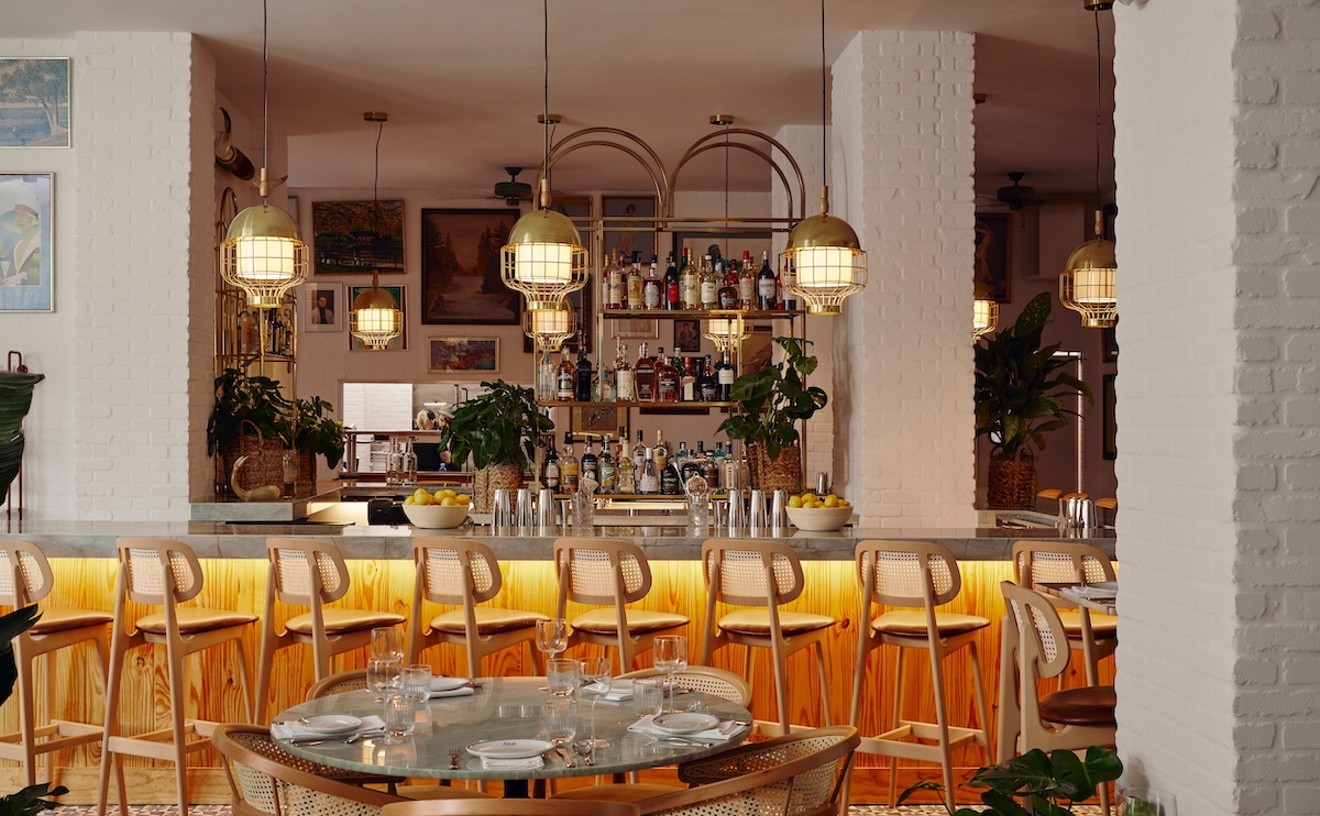"It not only has to be outstanding in terms of taste; it has to be at risk of extinction," Slow Food Miami leader Donna Reno says, "or the culinary tradition of that food is being lost and it's a candidate for being revived. It's got to be cherished." Even a sweet --- Roman Taffy Candy from New Orleans -- qualifies for the Ark of Taste because of its treasured history in that city.
Hua moa means "chicken egg" in Hawaiian, and the banana-plantain hybrid has a roundish shape. A single banana can weigh one pound. The hua moa traveled to Hawaii via outrigger canoe from Polynesia hundreds
of years ago. William F. Whitman Jr.,
tropical fruit enthusiast and East Coast hall-of-fame surfer, carried
the hua moa home to South Florida in 1960. The fruit did well
in our warm, humid climate. During the '60s and '70s, it was grown
mostly by Cuban farmers in Homestead, who called it "Hawaiiyano." It
was found mostly in Hispanic grocery stores.
Since the '90s, production has languished owing to pests and hurricanes. Few local
farmers of the fruit remain. Slow Food member and tropical-fruit
enthusiast Noel Ramos found farmer Larry Siegel in Davie. Siegel grows several hundred stands of the fruit.
also difficult to find the hua moa in Hawaii now. Because the fruit once flourished
in both places, Slow Food Miami and Slow Food Hawaii are conominating
the hua moa for the Ark of Taste.
On October 26, Michael's Genuine Food & Drink will host a (sold-out) Slow Food Miami Ark of Taste Dinner
to celebrate the nomination. The menu will star the plantain-like
banana (from Siegel's farm), which is in season through December.
Slow
Food hopes that by promoting rare foods, it will create more demand by
chefs and the public. Slow Food Miami's Reno says, "We want to
interest chefs in trying it. As far as we know, there are no chefs
in South Florida using hua moa. There is one famous chef in Chicago [Grant Achatz]
who has used them. So that's why I asked Michael Schwartz if he would
like to cook the dinner. He's been involved with almost all of the Ark
of Taste dinners, and he's always game for something new. I think one
of the most interesting things we do -- other than school gardens -- is to
promote a local plant that is losing its way."
Siegel confirms that Achatz has used his product in the past, but because the Chicago chef's restaurant, Alinea,
has an ever-changing menu, the business fluctuates: "He said that he
may order from me again this winter." Siegel also mentions that chef
Daniel Ramos, of the soon-to-open Market 17 in Fort Lauderdale, plans to put hua moa on the menu.
Reno
cites the success of some past Ark produce: "The Meyer lemon was down
to a single lonely grove in California... and then chefs starting getting
interested in it. Now there are groves of Meyer lemons everywhere in
California. The mission olive is also much more popular now."
Other
local fruits that have boarded the Slow Food USA Ark of Taste: the Wilson
Popenoe avocado, the Hatcher mango, and the Pantin mamey sapote.










